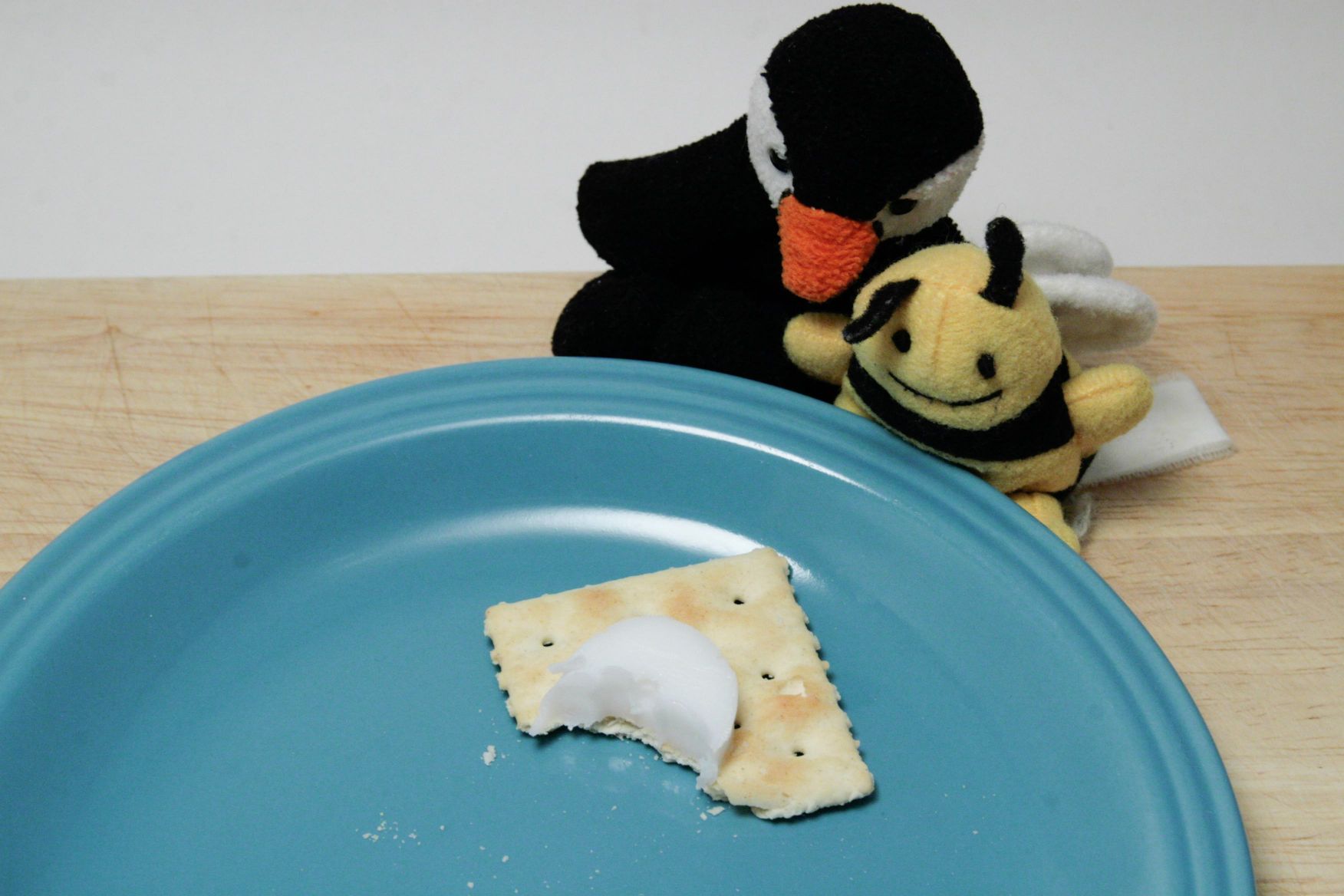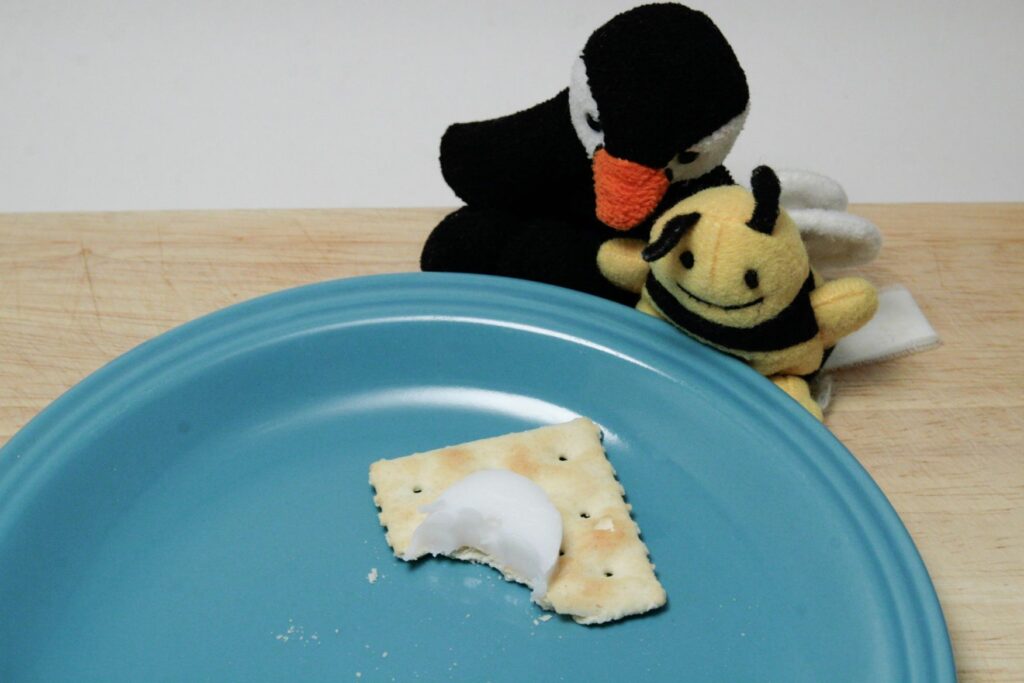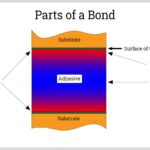Glue does not have a taste. It is odorless and tasteless. Most glues are made from a combination of water and polymers. These components don’t have any flavor or scent so glue does not taste like anything. When people say “how does glue taste like” they are usually referring to a type of glue that has been licked or swallowed.
Glue that has been licked may have a slightly sweet taste due to the sugar content in the adhesive. However, if glue has been swallowed, it can be very dangerous and may lead to intestinal blockage. So it’s best to avoid tasting glue. In general, glue can be a useful and helpful adhesive but it is not meant to be consumed. If someone accidentally ingests glue, they should seek medical advice immediately. It can be dangerous to consume glue, therefore it is best to keep it away from children and pets. In conclusion, glue does not have a taste because it is made from a combination of water and polymers. Although glue that has been licked may have a slightly sweet taste, it is not recommended to consume glue. It can be dangerous and it is best to keep it away from children and pets.
What does glue taste like

Glue has a very distinct and unpleasant taste. Generally speaking, it tastes bitter and chemically, due to the mix of substances that make it up. Many brands of glue have a strong, acrid smell which can be detected in the taste as well. Some forms of liquid glue, such as those used to make crafts, have a chemical taste. This can be particularly unpleasant, as the smell and taste are not just of glue, but also of the chemicals used in its creation.
Glue can also have a sweet taste, depending on the type, such as white school glue or epoxy. These types of glue taste sugary and sweet, as they are made from a combination of sugar and other substances. No matter what type of glue you taste, it is not an enjoyable experience. The taste and smell of glue can be quite overpowering and can leave a lingering taste in your mouth for some time. Even though it is unpleasant, tasting glue can be an interesting experience.
What happens if eat glue?
Eating glue is not recommended, as it is not edible and could cause a choking hazard. In general, glue does not have a pleasant taste. It can have a sour and bitter flavor, which makes it unpleasant to eat. In some cases, eating glue can cause gastrointestinal issues such as nausea and abdominal pain. It can also cause vomiting and diarrhea.
Consuming large amounts of glue can be dangerous and can result in life-threatening problems. Eating glue can cause blockages in the digestive system and can lead to serious health problems. Therefore, it is important to avoid eating glue as it can be harmful to your health. It is always best to find other alternatives to fulfill a creative project’s needs.
Can you smoke glue?
In general, it’s not recommended to do so as inhaling glue fumes is toxic. Even if you can smoke glue, it’s best to avoid it. In terms of how glue tastes like, it mostly tastes like a chemical. This is due to the solvent used in making glue. Some glues may also have an unpleasant smell.
Most glues are made of polyvinyl acetate, which is an acrylic ester. This makes it slightly acidic, which is why it tastes a bit like vinegar. In the end, it’s not advised to smoke glue as it’s toxic and can damage your lungs. It’s better to use glue for its intended purpose, such as for crafting and carpentry. Smoking glue can be very dangerous and should be avoided. Not only will it have an unpleasant taste, but it can have serious and long-term health consequences.
Is all glue edible?
Generally speaking, most glues are not edible and are not meant to be consumed. In terms of taste, some glues may have a faint smell or taste, but it is usually not strong enough to be detected. The adhesive properties of glue make it inedible, as even the most harmless types of glue used in crafting can cause irritation in the mouth and throat when swallowed. Non-toxic glues, such as those used for paper mache and other projects, are not edible and should not be consumed. In some cases, certain types of glue may have a slight sweet taste or a slight savoury taste.
This is because some glues contain food-grade ingredients and may be safe to consume in small amounts, although this is not recommended. Glue should never be used as a substitute for food, and any glue that is ingested should be monitored for adverse reactions. Glue is not made to be eaten, and it can be dangerous if consumed. Therefore, it is important to ensure that all glues are stored and used safely. In summary, it is not advisable to eat glue, regardless of the type. Glue is not meant to be eaten, and it can be harmful to ingest. It is important to remember that the adhesive properties of glue make it inedible, and the taste is usually not very pleasant either.
Is glue toxic to humans?
It is important to note that glue can be toxic when ingested, and it is not recommended that humans consume it. When it comes to the question of how glue tastes like, it is difficult to answer since glue generally has no taste due to the chemicals used in its production. Ingesting glue can cause an unpleasant taste, and it can also have a burning sensation in the throat, which should be avoided. Ingestion of glue can cause nausea, vomiting, abdominal pain, and difficulty breathing. In some cases, it can even lead to coma and death if not treated quickly.
Therefore, it is important to keep glue out of the reach of children and pets as it can be very dangerous. Overall, glue is not considered safe for human consumption, and it can have serious health consequences if ingested. Its taste is generally unpleasant and it is best to keep it out of the reach of people and animals.
What glue works on teeth?
Glue that works on teeth is often an acrylic-based adhesive or an epoxy resin. This type of glue has a strong hold, which makes it a great choice for keeping dental appliances in place. When it comes to taste, most people find that glue does not have a flavor. It typically has a very faint smell, but it is not so noticeable or overpowering. For those who do not like the smell of the adhesive, there are options that are designed to be tasteless and odorless.
This type of glue still provides a secure bond and is often used for dentures and braces. There are also special types of dental glue that are designed for specific tasks. For example, some glues are used to repair chipped teeth or fill cavities. These glues usually have a specific texture and flavor that is designed to be more pleasant for the user. Overall, glue used for teeth does not have a taste. It is designed to be odorless and have a very slight smell, but it should not be noticeable or bothersome.
Is Kiss Nail glue toxic?
Kiss Nail glue is not toxic, and it does not have an unpleasant taste. In fact, glue doesn’t have any taste at all. Most types of glue are made of polyvinyl acetate and other polymers, which are not poisonous. Some glues may contain small amounts of chemicals such as formaldehyde, but these can be avoided by using a glue specifically designed for nails. Kiss Nail glue is designed to be used on natural and artificial nails.
It provides a strong bond and is long lasting. The glue is designed to be non-toxic and does not contain any unpleasant odors or tastes. It is also easy to apply and remove. Kiss Nail glue is a safe and effective way to secure your nails. It is designed to stay in place and provide a strong bond, while still being gentle on your nails. When you use this glue, you don’t have to worry about it tasting bad or being toxic.
Does super glue taste bad?
In the case of super glue, it does not have any type of taste. Therefore, it does not taste bad. Glue is made from a variety of materials, such as resins, polymers and plasticizers, which are all odorless and tasteless. Therefore, it is safe to say that super glue does not taste bad. However, many people may experience an unpleasant taste if they accidentally inhale the fumes of super glue. The fumes can cause throat and eye irritation, resulting in a bitter taste in the mouth. So, while super glue does not have a bad taste, it is important to use it safely and avoid breathing in the fumes.
What does chewing gum taste like?
Chewing gum and glue may have a similar texture, but their tastes are vastly different. Chewing gum is typically sweet, leaving a pleasant taste in your mouth. It often contains flavorings like mint or fruit, so the exact flavor may vary. Meanwhile, glue typically has a bitter, chemical taste that isn’t very pleasant. It can even leave a bad aftertaste in your mouth.
Chewing gum is often chewed for the taste, while glue is usually not consumed at all. Chewing gum is made with ingredients like sugar, corn syrup and sometimes even chocolate, so it certainly isn’t something you’d want to get a taste of. On the other hand, you’d definitely not want to get a taste of glue. The distinction between the two is clear. Chewing gum is meant to be enjoyed, while glue should be avoided. The taste of the two is a great way to tell them apart, but it’s also important to note that chewing gum can be dangerous if swallowed. So it’s best to stick with the gum for a tasty and safe experience.
Why do some flavors taste stronger than others?
Glue has an unpleasant taste, often described as bitter or salty. The taste can vary depending on the brand and type of glue used. Generally, the taste of glue is not very strong, but some flavors may taste stronger than others. This can be due to the different ingredients used in each glue, such as the kind of resins, adhesives, and other compounds. For example, white glue usually has a milder taste, while yellow or wood glue have a stronger taste. Additionally, some glue may contain flavoring agents, such as lemon or mint, which can make the taste of glue stronger. In conclusion, some flavors of glue can taste stronger than others, depending on the type of glue and ingredients used.
What happens if you inhale super glue?
Inhaling super glue can be very dangerous, as it can cause serious health problems. It is not recommended to intentionally inhale any form of glue, whether it is super glue or not. When it comes to how glue tastes, it is generally considered to be a bad taste. Glue tends to have a chemical-like taste that is not pleasant. People who have inhaled glue have described the taste as being similar to burning plastic.
Inhalation of glue can cause serious respiratory problems. It can damage the lungs and cause difficulty in breathing. It can also cause an asthma attack, or even in the most serious cases, death. So it is important to remember that glue is not something to be inhaled, regardless of the type. Even a small amount of super glue can be dangerous. It is best to avoid it altogether and find other methods to repair whatever it is you need to repair. Additionally, if someone does accidentally inhale glue, it is important to seek medical attention as soon as possible. This will help to reduce the risk of long-term health problems.






